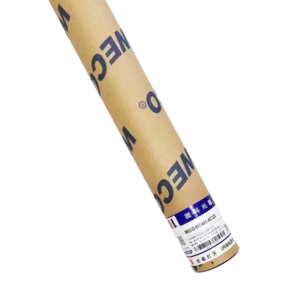Workplace safety is of utmost importance in any industry. Employers have a responsibility to provide a safe working environment for their employees. One technology that has proven to be highly effective in ensuring workplace safety is a light curtain. So, how does a light curtain work and what are the advantages and application fields that customers should pay attention to?
A light curtain is an optoelectronic device that is commonly used as a safety mechanism in industrial settings. It consists of a sender unit and a receiver unit, which are typically mounted on opposite sides of an area where a hazard may occur, such as a machine or a conveyor belt. The sender unit emits an array of infrared light beams to the receiver unit, creating a protective curtain of light.
When an object or a person breaks one or more beams of light, the light curtain detects the obstruction and immediately sends a signal to the machine or equipment to stop. This quick response time helps prevent accidents and injuries by providing an instant safety barrier.
The light curtain works on the principle of photoelectric sensing. It uses a combination of transmitters and receivers to emit and detect the light beams. The receivers constantly monitor the intensity of the light beams received. If there is a reduction in the intensity, it indicates the presence of an obstruction.
One advantage of using a light curtain is its ability to provide a non-intrusive safety solution. Unlike physical barriers or fences that may hinder productivity or obstruct the workflow, a light curtain can create an invisible safety barrier without impeding the movement of materials or the operation of machinery. This ensures a seamless and efficient workflow while maintaining a high level of safety.
Another advantage of a light curtain is its flexibility and adaptability. It can be easily customized to fit various work environments and applications. The height, width, and sensitivity of the curtain can be adjusted to meet specific safety requirements. This makes it suitable for a wide range of industries, including manufacturing, packaging, automotive, and robotics.
In the manufacturing industry, for example, a light curtain can be installed around hazardous machines such as presses or stamping equipment. It can detect any unauthorized or accidental entry into the machine’s operation area, instantly stopping the equipment and preventing any potential injury.
In the packaging industry, a light curtain can be used on conveyor belts to safeguard workers from getting too close to moving parts or getting their hands caught. If a worker reaches into the protected area, the light curtain immediately stops the conveyor, reducing the risk of hand injuries.
Light curtains are also commonly employed in the automotive industry. They are used in conjunction with robots to create a safety perimeter around the robot’s workspace. If an operator or any other object comes within the predefined safety zone, the light curtain will trigger an emergency stop, preventing collision or injury.
In conclusion, a light curtain is a highly effective safety solution that works by using infrared light beams to detect obstructions and prevent accidents in the workplace. Its advantages lie in its non-intrusive nature, adaptability, and flexibility. The diverse application fields of light curtains make them an indispensable safety device in many industries. Whether it is preventing access to hazardous machinery or ensuring safe operation around moving parts, a light curtain plays a vital role in maintaining workplace safety. So, next time you ask, “how does a light curtain work?”, remember its crucial contribution to safeguarding employees and preventing accidents.


